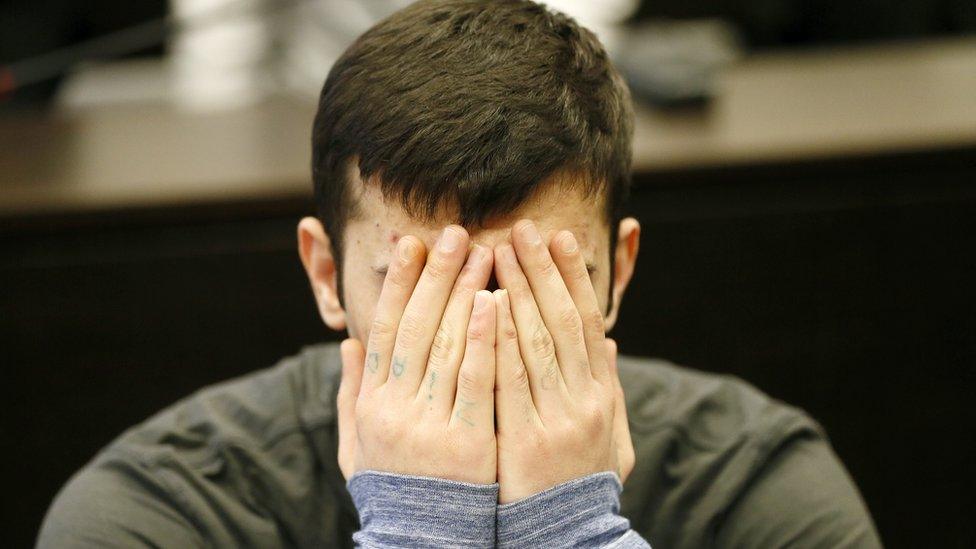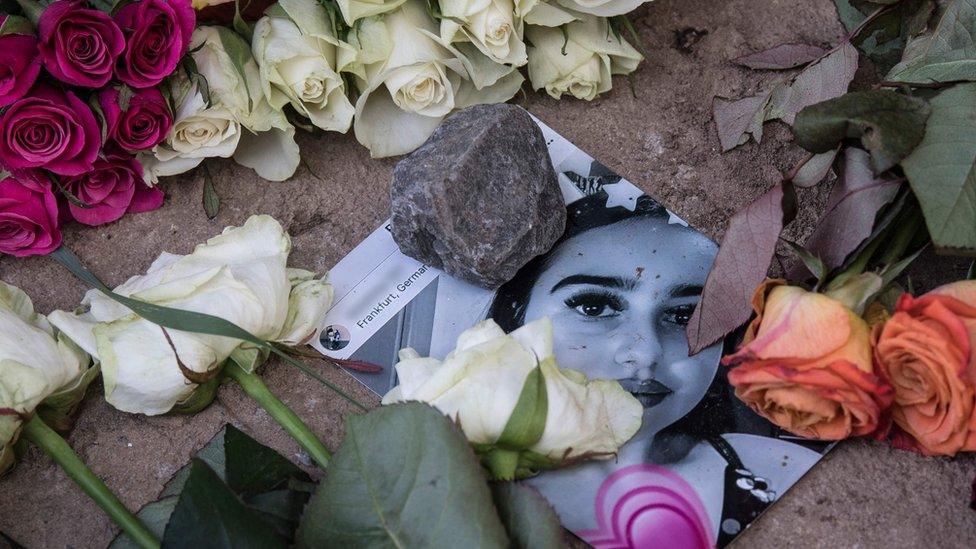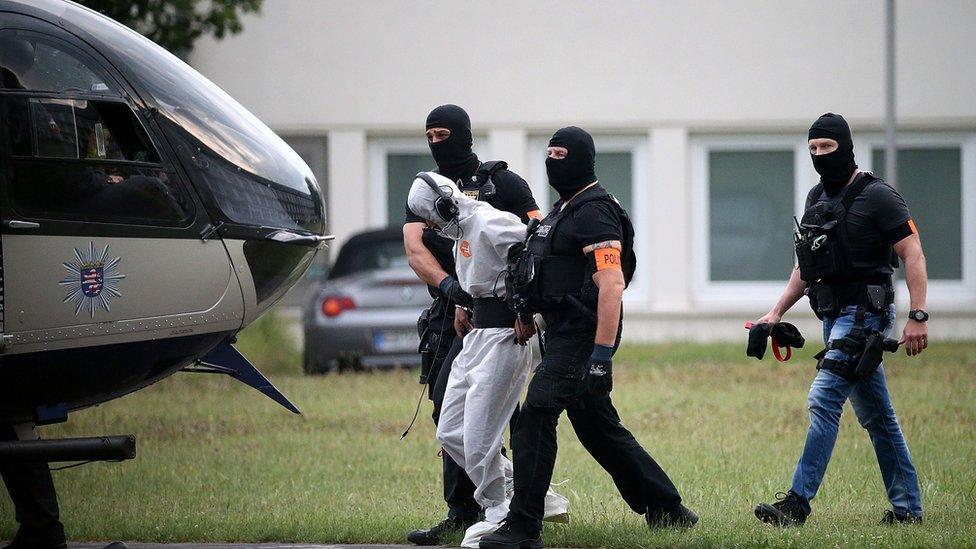Germany murder: Iraqi admits Wiesbaden teenager killing
- Published

Ali Bashar covered his face at the start of the trial, showing the name "Ziad" written on his fingers
A failed asylum seeker who was arrested by German police in Iraq has gone on trial accused of the rape and murder of a 14-year-old German girl in Wiesbaden.
Ali Bashar, 22, admitted in court that he had strangled Susanna Feldman, but said he did not know how it happened.
The May 2018 killing prompted outrage in Germany and led Chancellor Angela Merkel to call for faster deportation of failed asylum seekers.
The girl's body was found two weeks after she disappeared.
"Everything went black before my eyes, then it all happened," the defendant told the court through an interpreter. "I don't know how it could have happened."
Ali Bashar is also accused of attacking a man in a park and faces a separate trial next week for allegedly raping a girl aged 11.

Flowers marked the spot where Susanna's body was found last June
Susanna Feldman's mother, Diana, was in court to hear details of her daughter's death and the indictment against Ali Bashar.
Defendant gives evidence
As the trial got under way amid tight security, the defendant gave a statement to the court in which he described how his family had fled Iraq in 2015.
Speaking through an interpreter, he said he had drunk alcohol since the age of 12 but had used drugs for the first time when he came to Germany.
He told the court he had met Susanna through a mutual acquaintance three months before the attack and had spent time with her, listening to music and walking with her, hand in hand. He had not known her age, he said.

The suspect was brought back to Germany in an operation led by the head of German federal police
He denies rape and says they had consensual sex. But prosecutors say Susanna was raped in a forest and then strangled from behind when she threatened to go police.
Her body was found buried beside a railway line after police were given information from a 13-year-old Afghan refugee from Ali Bashar's asylum shelter.
By the time she had been found, Ali Bashar and his family had left Germany for Iraq.
They had travelled to the Kurdish city of Irbil in Iraqi Kurdistan, where the 22 year old was detained by local forces and returned to Germany.
High-profile case
In a high-profile mission, the head of German federal police, Dieter Romann, travelled to Irbil with anti-terror police to bring him back. Iraq and Germany do not have an extradition treaty.
The case has provoked widespread anger politically. Police were criticised after the teenager's disappearance for failing to carry out a sufficient search.
Chancellor Angela Merkel said during a TV interview last June that the case showed how important it was for people with no residency status to be put before the courts so that "they can quickly get sent home again".
Far-right politicians from the AfD party have been accused of seizing on the case for political ends. Marches and vigils were held against illegal immigration, three years after a wave of migrants and refugees arrived in Germany.
Several high-profile crimes involving asylum seekers have sparked public anger in Germany. The killing of a 15-year-old German girl in the south-west of Germany by her ex-boyfriend was also seized upon by far-right groups.
There were clashes last August after a man was fatally stabbed in the eastern city of Chemnitz. An Iraqi and a Syrian were arrested at the time.
- Published9 June 2018
